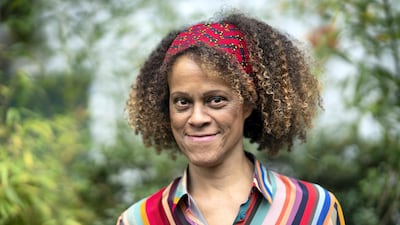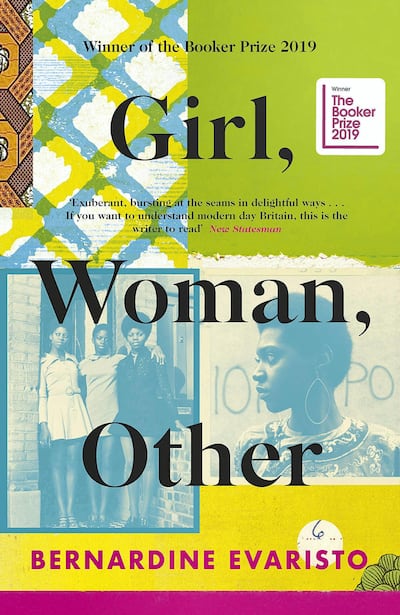British novelist Bernardine Evaristo says she has never let writer's block get in the way of her writing. The distinguished author, who has written eight works of fiction throughout her long career, in fact doesn't believe in it.
For her, 'writer's block' only hinders creativity and likely covers up a deeper issue. She even prohibits her creative writing students from using it as an excuse.
"I think we should stop using that term altogether," Evaristo says while speaking Hay Festival Abu Dhabi. "In most cases, there's something else at work. Maybe you can't seem to find the time, maybe you need a full day to work as opposed to one hour. Maybe you prefer writing by hand at a cafe instead of typing it straight on a computer. Find what works for you, and if you seem you can't write, try to figure out why."
Evaristo may have risen to stardom in 2019 – when she became the first black British author to win the Booker Prize for her novel Girl, Woman, Other – but she has been active in the creative field for more than four decades. And back then, the literary world was less accepting of her and other women of colour.
"Growing up in the 1970s and '80s, we felt very isolated from the mainstream. There were no representations of women of colour," she says during the discussion of her award-winning novel Girl, Woman, Other. "Society may have changed recently to embrace diverse voices and promote inclusivity, but we were still fighting to be included then."
One of the central characters in her novel, Amma Bonsu – a theatre director on the verge of her big break – may seem to be a reflection of Evaristo herself, but the author says that the character is an homage to all the women who were fighting to be heard then. The novel begins with Bonsu as she prepares for her play's debut at the National Theatre in London and the opening scene sets out to make a point.
“I wanted to give the character a big break. The National Theatre is the most established theatre venue in the UK, so it made sense for that to be the opening scene,” Evaristo says, noting a similarity between the character’s leap into the mainstream and her own big break with the Booker-win. “Sadly, in real life, the National Theatre still has never had a female director.”
Girl, Woman, Other in itself is a protest against mainstream literature, in style and in substance. With a dozen central characters – all of whom are women from various cultural backgrounds and social classes – the book confronts an absence of black women in fiction. The characters are aged 19 to 93. The youngest is Yazz, a university student from a middle-class family and an activist; the oldest is Hattie, a 93 year-old farmer in the North of England. Evaristo says she wanted to accurately represent the rich history and the presence of black women in England.
“You don’t see many old black women represented in fiction. With the character of Hattie, I wanted to show an old black women with a fulfilled life, who had triumphed and was still triumphing. She lives on her own and is a formidable and powerful figure.”
Evaristo, whose roots in the creative world lie in theatre, says her background as an actress helped her dive into the minds and lives of the 12 women. “It wasn’t such a leap to write the characters. I enjoy disappearing in a character and having them speak through me.”
One thing Evaristo was conscious of while writing her novel was the authenticity of her characters’ voices. She says she would read her writing out loud so she would hear what they were saying, to make sure their tone matched their personality and background, and that her “ear for dialogue was working.”
The novel took five years to write, Evaristo says, noting that she was busy with other work at the time, such as teaching creative writing at Brunel University in London. And though she didn’t face any troubles with writing the book, she did have some trouble with finding the right title.
"The original title was Afro-Saxon Amazons," she says. "But people thought it didn't quite fit. They said it sounded academic and that afro brought to mind the hairstyle and couldn't refer to a demographic. Saxon didn't sound quite right either."
Evaristo says she couldn’t go for something symbolic or poetic as she wanted the title to accurately represent what the novel was about. “The ‘other’ in the title refers to the ways in which the characters are othered as women, women of colour or for their sexual preferences and identities.”



